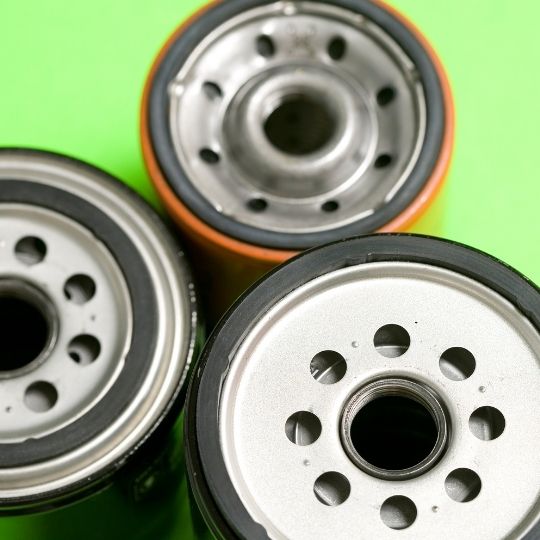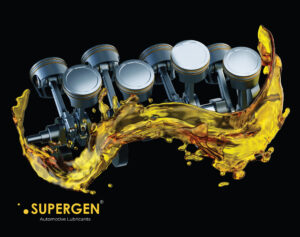Types of oil filters
An oil filter is essential for the health of the engine. The engine oil protects and lubricates the engine. This oil, over time, collects dirt and pollutants that can render it ineffective. The oil filter is the component that filters out these pollutants from the oil, thus allowing it to function optimally. There are many types of oil filters available in the market. Depending on the make and model of your car, the manufacturer’s specifications as well as the type of oil you use, the type of oil filter will differ.

Are there any differences in oil filters?
Yes, there are different types of oil filters. Most of the people consider the cost of the oil filter while making a purchase decision. Different Oil filters use different material and are of built from inside even though they look almost the same from the outside.
Here are the common types of engine oil filters that you can choose from:
Full Flow Oil Filter
This oil filter is also called the Primary Oil Filter and is the most widely used type of filter. This type of filter filters and purifies all of the oil present in the engine, thus providing the engine with clean oil 24/7. These types of filters are used especially in colder weather. Engine oil tends to thicken in low temperatures. This means that it may not be able to flow as easily as it can when the temperatures are warmer.
If the oil filter is narrow and restrictive, the thick oil will be unable to circulate and the engine will not receive the proper amount of oil it requires. This can permanently damage the engine and hike up maintenance costs. A full flow oil filter ensures that this problem does not occur. It allows the oil to move freely even when it is very viscous and hence protects the engine at cold temperatures well.
There are two main types of oil filters under the full flow category. They are:
Cartridge Oil Filter
This type of primary oil filter is mounted upright in the engine. This position allows one to examine and replace the filter without draining the oil from the engine. Most people agree that this is the type of full flow filter that is easiest to use.
Furthermore, a lot of cartridge filters do not have metal parts and thus can be easy to recycle. Instead of metal, cartridge filters use substances like cellulose filter media or plastic. Since they are easy to recycle, these filters are also sometimes called Eco Oil Filters.
Spin On Oil Filter
This too is a type of full flow oil filter. The spin on filter is probably the most common type of oil filter found in cars. It is made up of a paper based filtering system that is fitted with a steel canister. Spin ons are mounted either on the side or at the bottom of the engine.
This is why, when one unscrews it, dirty oil is released. Thus, it can be quite messy to use a spin on filter. However, spin ons are very simple to replace, even for the layman. Any vehicle owner can remove and install a spin on filter by themselves. This ease in installation makes this type of filter very popular.
Secondary Oil Filter
As the name suggests, the secondary oil filter is installed to support the vehicle’s primary or full flow oil filter. Unlike the primary filter, this filter does not clean all of the engine’s oil. In fact, secondary filters clean less than 10% of all the oil used by the engine. The main purpose of this filter is to provide back up to the primary filter. That is, it cleans up any contaminants that may have been missed by the full flow filter.
Having the secondary oil filter is optional, since it is not integral to the functioning or filtration of the oil. However, it is always good to have a secondary oil filter that can ensure the proper cleaning of the engine oil. Furthermore, by providing extra protection to the oil, a secondary oil filter can extend the life of the engine oil, and you would not have to change it that often. Thus, a secondary oil filter can often save extra oil change costs.
There are two common types of secondary oil filters. They are:
Spinner Oil Filter
This type of secondary oil filter uses a centrifugal force to trap and remove contaminants from the engine oil. Since this filter uses a high amount of centrifugal force, it is able to trap even the smallest particles in the motor oil. This keeps the oil extremely clean.
Magnetic Oil Filter
This filter uses a magnetic force to remove any traces of metallic contaminants from the engine oil. However, it is not able to filter any dirt, grime, or non metallic pollutants. This type of filter is also reusable and does not need to be replaced. Instead, one can simply clean out the magnetic oil filter and reinstall it to use again.
Is there really a difference between oil filters?
A lot of engine oil manufacturers claim that you do not need an expensive or different oil filter when using synthetic oil. The better quality an oil filter is, the better job it will do in filtering contaminants. But the truth is, a better oil filter will help you retain your vehicle’s performance for a longer time.
Why are there so many different oil filters?
Different vehicles require different oil filters according to their engine size, engine shape & engine oil capacity.
Each oil filter is to be replaced with every engine oil renewal. If you fail to change the oil filter, it will clog up and won’t be able to filter the oil effectively & remove contaminants present in the engine.
Conclusion
An oil filter is integral to the well being of the engine and the proper functioning of the engine oil. There are two types of oil filters. Firstly, primary filters which clean all the oil present in the engine. And then, secondary filters which provide support to the primary filter. These two large categories have sub types such as cartridge, spin on, spinner and magnetic oil filters. These types all have their own advantages and disadvantages. The choice of which oil filter to use depends upon the needs of the vehicle and the recommendations of the manufacturers.








